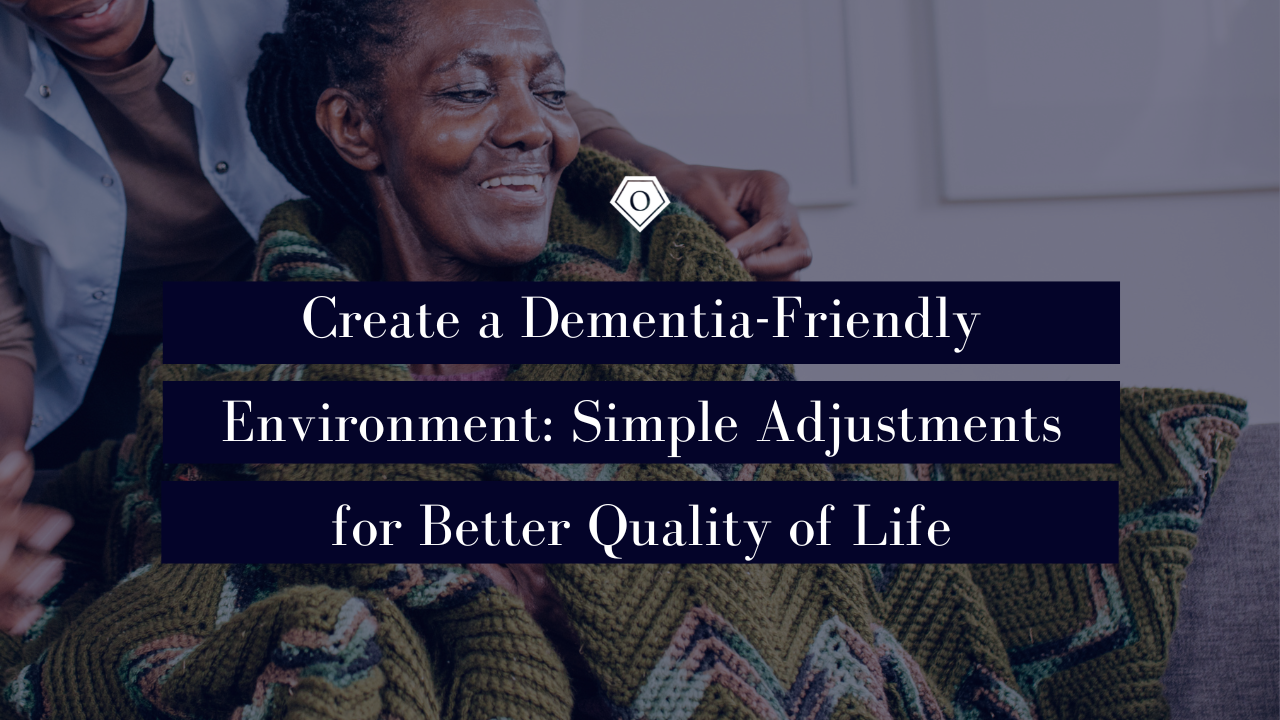Living with dementia poses unique challenges, not only for the individual diagnosed with the condition but also for their caregivers and loved ones. However, by making simple environmental adjustments, it’s possible to create a more supportive and dementia-friendly space that enhances quality of life and promotes well-being. In this article, we’ll explore practical tips and adjustments that can be implemented to create a dementia-friendly environment, fostering comfort, safety, and independence for those living with dementia.
Understanding the Needs of Individuals with Dementia:
Before making any environmental adjustments, it’s essential to understand the specific needs and challenges faced by individuals living with dementia. Dementia can affect cognitive abilities, memory, perception, and behavior, making it essential to consider how these changes may impact daily life and environmental interactions. By understanding the unique needs of individuals with dementia, caregivers can better tailor their approach to create a supportive and accommodating environment.
Enhancing Safety and Accessibility:
One of the primary goals of creating a dementia-friendly environment is to enhance safety and accessibility for individuals with dementia. This can include removing tripping hazards, ensuring clear pathways throughout the home, and installing handrails or grab bars in critical areas such as bathrooms and hallways. Additionally, it’s vital to secure potentially dangerous items such as cleaning supplies, medications, and sharp objects to prevent accidents or injuries. Simple adjustments like installing locks on cabinets and drawers can help minimize risks and promote a safer living environment.
Promoting Familiarity and Comfort:
Familiarity and routine can provide a sense of security and comfort for individuals living with dementia. To create a dementia-friendly environment, consider incorporating familiar objects, photographs, and mementos that evoke positive memories and connections to the past. This can include arranging furniture in familiar configurations, displaying cherished belongings, and playing familiar music or sounds. Creating a calming and familiar atmosphere can help reduce anxiety and agitation, promoting a greater sense of well-being for individuals with dementia.
Improving Communication and Engagement:
Effective communication is essential for maintaining connections and fostering meaningful interactions with individuals living with dementia. To support communication and engagement, consider using clear, straightforward language, maintaining eye contact, and speaking slowly. It can also minimize distractions and background noise to help individuals focus on the conversation. Additionally, visual cues such as gestures, facial expressions, and visual aids can enhance understanding and promote engagement. By creating a supportive communication environment, caregivers can help individuals with dementia feel valued, heard, and understood.
Creating a Supportive Caregiving Environment:
Caregivers play a crucial role in creating a dementia-friendly environment, and it’s essential to prioritize their well-being and support. Providing education, resources, and support services can help caregivers better understand the challenges of dementia and develop effective coping strategies. Additionally, respite care options can offer much-needed breaks for caregivers, allowing them to recharge and attend to their needs. By creating a supportive caregiving environment, caregivers can better meet the needs of individuals with dementia while maintaining their health and well-being.
Incorporating home health care:
Incorporating home health care into creating a dementia-friendly environment can significantly enhance the quality of care and support provided to individuals living with dementia and their families. Home health care professionals bring specialized knowledge and experience in dementia care, offering personalized assistance tailored to the unique needs of each individual. They can provide invaluable support in implementing safety measures, facilitating communication, and promoting engagement in meaningful activities. Moreover, home healthcare services offer respite for family caregivers, allowing them to take breaks and attend to their needs while ensuring their loved ones receive high-quality care in their homes. By partnering with home healthcare providers, families can create a supportive and nurturing environment that enhances the well-being and quality of life of individuals living with dementia.
Creating a dementia-friendly environment involves making simple adjustments that enhance safety, promote familiarity, support communication, and prioritize the well-being of individuals living with dementia and their caregivers. By understanding the unique needs and challenges of dementia and implementing practical strategies to address them, it’s possible to create a supportive and accommodating environment that enhances the quality of life for everyone involved. With compassion, creativity, and a commitment to fostering dignity and respect, we can create spaces where individuals with dementia can thrive and live with dignity and purpose.
Alzheimer’s & Dementia Home Care
Onyx Home Care’s neurological disorder care is built around a system of support. This service includes skilled home care as well as a unique program that centers on the patient’s interests and stage of illness. Our goal is to see happy family members, patients, and caregivers. Often times, caregivers feel remote. Our team includes each person in the home care process to provide inclusive care that helps the patient thrive.






